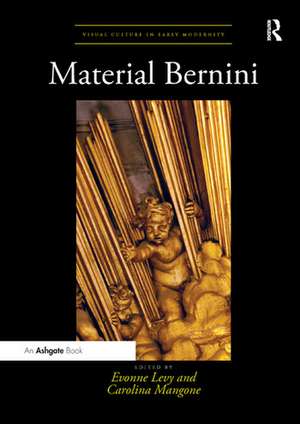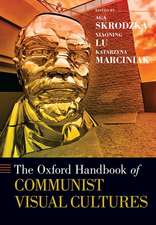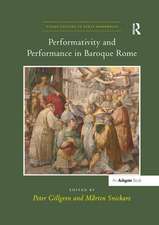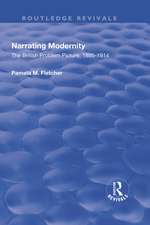Material Bernini: Visual Culture in Early Modernity
Editat de Evonne Levy, Carolina Mangoneen Limba Engleză Paperback – 14 aug 2018
| Toate formatele și edițiile | Preț | Express |
|---|---|---|
| Paperback (1) | 300.49 lei 6-8 săpt. | |
| Taylor & Francis – 14 aug 2018 | 300.49 lei 6-8 săpt. | |
| Hardback (1) | 826.01 lei 6-8 săpt. | |
| Taylor & Francis – 21 apr 2016 | 826.01 lei 6-8 săpt. |
Din seria Visual Culture in Early Modernity
- 22%
 Preț: 324.16 lei
Preț: 324.16 lei - 18%
 Preț: 1061.84 lei
Preț: 1061.84 lei -
 Preț: 311.37 lei
Preț: 311.37 lei - 9%
 Preț: 1022.27 lei
Preț: 1022.27 lei -
 Preț: 312.12 lei
Preț: 312.12 lei -
 Preț: 356.70 lei
Preț: 356.70 lei -
 Preț: 336.27 lei
Preț: 336.27 lei -
 Preț: 432.98 lei
Preț: 432.98 lei - 17%
 Preț: 343.55 lei
Preț: 343.55 lei - 25%
 Preț: 324.16 lei
Preț: 324.16 lei - 30%
 Preț: 769.92 lei
Preț: 769.92 lei - 13%
 Preț: 338.33 lei
Preț: 338.33 lei - 22%
 Preț: 259.98 lei
Preț: 259.98 lei - 25%
 Preț: 326.11 lei
Preț: 326.11 lei -
 Preț: 471.08 lei
Preț: 471.08 lei - 28%
 Preț: 826.84 lei
Preț: 826.84 lei - 28%
 Preț: 819.90 lei
Preț: 819.90 lei - 28%
 Preț: 878.42 lei
Preț: 878.42 lei - 28%
 Preț: 829.69 lei
Preț: 829.69 lei - 25%
 Preț: 325.43 lei
Preț: 325.43 lei - 30%
 Preț: 853.03 lei
Preț: 853.03 lei - 17%
 Preț: 339.96 lei
Preț: 339.96 lei - 30%
 Preț: 830.92 lei
Preț: 830.92 lei - 16%
 Preț: 338.33 lei
Preț: 338.33 lei - 30%
 Preț: 826.02 lei
Preț: 826.02 lei - 30%
 Preț: 772.60 lei
Preț: 772.60 lei - 18%
 Preț: 1017.63 lei
Preț: 1017.63 lei - 30%
 Preț: 768.62 lei
Preț: 768.62 lei - 17%
 Preț: 338.33 lei
Preț: 338.33 lei - 30%
 Preț: 771.07 lei
Preț: 771.07 lei - 26%
 Preț: 324.84 lei
Preț: 324.84 lei - 30%
 Preț: 772.76 lei
Preț: 772.76 lei - 16%
 Preț: 347.33 lei
Preț: 347.33 lei - 31%
 Preț: 765.03 lei
Preț: 765.03 lei -
 Preț: 489.26 lei
Preț: 489.26 lei - 28%
 Preț: 822.91 lei
Preț: 822.91 lei - 18%
 Preț: 300.09 lei
Preț: 300.09 lei - 26%
 Preț: 820.73 lei
Preț: 820.73 lei - 28%
 Preț: 829.69 lei
Preț: 829.69 lei - 28%
 Preț: 826.84 lei
Preț: 826.84 lei - 30%
 Preț: 776.03 lei
Preț: 776.03 lei
Preț: 300.49 lei
Preț vechi: 357.14 lei
-16% Nou
57.51€ • 59.82$ • 47.47£
Carte tipărită la comandă
Livrare economică 14-28 aprilie
Specificații
ISBN-10: 113835306X
Pagini: 248
Ilustrații: 77 Halftones, black and white; 77 Illustrations, black and white
Dimensiuni: 174 x 246 x 30 mm
Greutate: 0.5 kg
Ediția:1
Editura: Taylor & Francis
Colecția Routledge
Seria Visual Culture in Early Modernity
Locul publicării:Oxford, United Kingdom
Cuprins
List of Illustrations vii
Contributors xiii
Preface xvii
Acknowledgments xxi
Abbreviations xxiii
Obstacles in the Path to a Material Bernini (1900–Present) 1
Evonne Levy
PART I: IMMATERIAL/MATERIAL
The Matter of Metaphor: Truth, Sculpture, and the Word 23
Maarten Delbeke
Im/material Bernini 39
Fabio Barry
Bernini scultore pittoresco 69
Carolina Mangone
Body and Clay: Material Agency from an Early Modern Perspective 105
Joris van Gastel
PART II: CLAY BOZZETTI
What Is a Bozzetto? 123
Michael Cole
Bernini’s Bozzetti and the Trope of Fire 147
Steven F. Ostrow
The Concept of Bernini’s “Calculated Spontaneity”:
A Critical Reassessment 169
Tara L. Nadeau
vi material bernini
Bernini/Not Bernini: Reflections on the Role of Technical
Evidence in the Attribution of Bernini’s Terracottas 187
C.D. Dickerson III and Anthony Sigel
Bibliography 219
Index 239
Notă biografică
Carolina Mangone is Assistant Professor at Princeton University, USA.
Recenzii
Descriere
Bringing together established and emerging specialists in seventeenth-century Italian sculpture, Material Bernini is the first sustained examination of the conspicuous materiality of Bernini's work in sculpture, architecture, and paint. The various essays demonstrate that material Bernini has always been tied (whether theologically, geologically, politically, or in terms of art theory) to his immaterial twin. Here immaterial Bernini and the historiography that sustains him is finally confronted by material Bernini. Central to the volume are Bernini's works in clay, a fragmentary record of a large body of preparatory works by a sculptor who denied any direct relation between sketches of any kind and final works. Read together, the essays call into question why those works in which Bernini's bodily relation to the material of his art is most evident, his clay studies, have been configured as a point of unmediated access to the artist's mind, to his immaterial ideas. This insight reveals a set of values and assumptions that have profoundly shaped Bernini studies from their inception, and opens up new and compelling avenues of inquiry within a field that has long remained remarkably self-enclosed.















